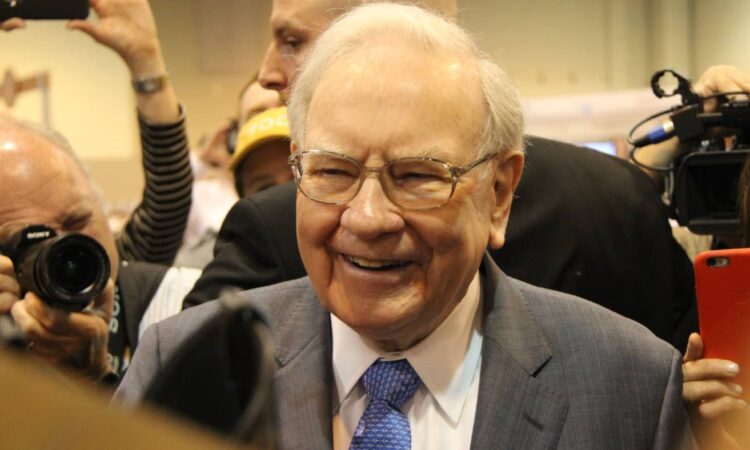Warren Buffett’s valuation tool tells me there’s a once-in-a-decade chance to get rich from the UK stock market!


Image source: The Motley Fool
Over 20 years ago, Warren Buffett put forward the idea that the best way to gauge whether a stock market is valued correctly is to compare the market cap of all listed companies, to the gross domestic product (GDP) of the country.
It’s a similar concept to the price-to-earnings (P/E) ratio. With the ‘Buffett Indicator’, price is the stock market valuation of all companies and earnings is national income (GDP), expressed as a percentage.
By comparing the two variables over time, Buffett argues that it’s possible to identify whether it’s a good time to invest. When he first came up with the concept he boasted that it was “probably the best measure of where valuations stand at any given moment“.
So what is the indicator currently telling me? According to the table below, the UK stock market is presently offering the best value for 10 years.
| Year | Market cap of UK stock market (£trn) | Nominal gross domestic product (£trn) | Buffett indicator |
| 2013 | 4.258 | 1.782 | 239% |
| 2014 | 4.091 | 1.863 | 220% |
| 2015 | 3.958 | 1.921 | 206% |
| 2016 | 4.582 | 1.999 | 229% |
| 2017 | 4.235 | 2.085 | 203% |
| 2018 | 3.787 | 2.157 | 176% |
| 2019 | 3.925 | 2.238 | 175% |
| 2020 | 3.639 | 2.110 | 173% |
| 2021 | 3.995 | 2.270 | 176% |
| 2022 | 3.732 | 2.482 | 150% |
| 2023 (at 30 April) | 3.756 | 2.482 (2022 figure) | 151% |
Is the measure any good?
With the benefit of hindsight, it’s possible to claim that this valuation tool predicted the 2008 stock market crash.
At the end of 2007, the indicator was recording a value of 280% — much higher than any value seen in the last 10 years. This implies that the market was over-valued. During 2008, the FTSE 100 recorded its worst annual fall, losing 31.3% of its value. By December 2008, Buffett’s measure was down to a more reasonable 184%.
But not everyone’s a fan of his methodology.
Nasdaq looked at 14 major US market declines since 1971 and found that the indicator gave advance warning of just seven. In theory, tossing a coin would have achieved the same result. But interestingly, it did predict seven of the last eight falls.
Another criticism is that with increasing globalisation, the country in which a company is listed bears little relevance to where it derives its income. A stock market valuation will reflect global income but a country’s GDP only includes domestically generated sales.
But regardless of what Buffett’s valuation tool says, I agree that now’s a good time to invest in UK shares.
Where to invest?
There are plenty of stocks — particularly in the FTSE 100 — offering generous dividends.
And there are many others (cyclical in nature) whose low valuations reflect the cost-of-living crisis and the fragile state of the global economy. However, these should start to recover once confidence picks up and growth returns to historical levels.
But instead of having to choose from the 1,926 stocks listed on the London Stock Exchange, I’d be tempted to invest in a tracker fund. This has the advantage of creating a diversified portfolio from the ownership of just one investment.
A FTSE All-Share Index tracker will reflect the combined performance of around 600 UK stocks.
History suggest this will deliver a better return than investing in property. It’s also higher than the interest rates offered on savings accounts and government bonds.
| Returns to November 2022 | Average UK property price | FTSE All-Share Index (with dividends reinvested) |
| 30 years | 454% | 787% |
| 20 years | 135% | 319% |
| 10 years | 75% | 93% |
Of course, past performance is not necessarily a good guide as to what’ll happen in the future. Although there will inevitably be some bumps along the way, over the long term, equities should outperform most other types of investments.
I’m therefore going to continue investing any spare cash I have in UK stocks and shares.





